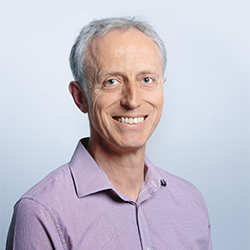If you could capture in one word what money means to you, what would it be?
This is a question I often reflect on, but always come up with the same answer: security. It’s boring, I know. And not very original. But at its essence, that’s what money means to me. For others, the word may be a little more exciting like “opportunity”, or “legacy”, or for some money may even be a “threat”.
I discovered how unoriginal my word is when I read Khe Hy’s blog, You’re thinking about “financial security” the wrong way. Khe Hy has been dubbed the “Oprah for Millennials”. At the age of 35, he gave up a lucrative career on Wall Street, resigning as managing director of BlackRock’s Hedge Fund of Funds division to figure out how to live “a more fulfilled life”. Hy suggests that we all seek financial security in some form or other. A spin-off from Mazlow’s hierarchy of needs.
We all want at the very least to have enough money to survive. But Hy makes the point that “financial security” does not necessarily equal “a life well-lived”. It prompts the question, “How much money is enough?”
To answer this question, Hy suggests that we have to grapple with the “messy middle”, which sits between financial security (“enough”) and a life well-lived. For Hy, the “messy middle” consists of what he refers to as a lot of the “new-age woo-woo”, concepts such as meaning, freedom, health, relationships, learning, hobbies and sleep.
What he is highlighting is the trade-offs we have to make to get the balance right between financial security and a life well-lived. An investment banker will be happy to sacrifice sleep to make more money. A high-school teacher faced with the demands of a class of teenagers may not make a huge amount of money but is unlikely to survive without sleep. Both are striving for a life well-lived.
“Financial security” does not necessarily equal “a life well-lived”
Financial planners may see their primary role as helping clients achieve financial security. As we can see, each person’s interpretation of this is unique. Money is simply a means to an end. So perhaps it is time for financial planners to acknowledge that their primary role is to help clients achieve a life well-lived.
If this is the case, then much of the work that a financial planner ideally needs to do sits in the “messy middle” of their clients’ lives. Given that this is full of “new-age woo-woo”, many planners may not be that excited at the prospect. Particularly given that financial planners’ training is primarily technical and focuses on helping people achieve financial security.
Most financial planners are happy to ask their clients: “Tell me how much is enough, and I’ll work out how much you need.” They are also willing to offer: “I’ll put a plan together so that you can end up with enough, dead or alive.” Because the middle is messy, the average client will say: “I don’t know how much is enough.” Now what? This is where a financial planner can choose to help a client grapple with the “messy middle”. Or not. It is easier not to get involved in this part of a client’s life.
As Brené Brown points out, “It’s much easier to talk about what we want and need than it is to talk about fears, feelings and scarcity (the belief that there’s not enough).” And after all, money is time. The first question a financial planner is likely to ask is: “How long will this working in the ‘messy middle’ take?” The answer of course is, “It depends.”
Perhaps it is time for financial planners to acknowledge that their primary role is to help clients achieve a life well-lived
In the latter part of the 20th century, it was okay for financial planners to avoid the “messy middle”. For the Baby Boomer generation, conditioned by parents who had endured the Great Depression and the Second World War, financial security effectively equals a life well-lived. It is no coincidence that money means security to me. Both my parents lived through these periods when there was very little financial, physical or emotional security. My mother’s father went to war when she was nine years old. He returned when she was 15. He did not even recognise her at the train station on his return home. An emotional desert had developed between them.
For those born more recently, the story is different. The developed world has so much more to offer than simply survival. There is the opportunity to engage with the “new-age woo-woo” stuff because there is more security in the world. Stephen Pinker, among others, has written about how, despite the daily diet of indigestible news about what is going wrong in every sector of society, the world is safer than it has ever been. And this applies despite the Covid-19 pandemic.
For perspective, the Spanish Flu of 1918-20 is estimated to have killed up to 50-million people, or 2.7% of the global population at the time. At the time of writing, there are 966 000 Covid-19 deaths or 0.012% of a global population of about 7.8-billion people.

Not only is the world safer, but it is evolving fast. When it comes to financial advice, I can get a Robo Advisor to work out how much I need to have enough money for financial security. I have worked with one named Eva. (They even have names.) And “she” was extremely helpful. The process was seamless and cheap. But if financial security doesn’t mean a life well-lived, then I need more help than what I can get from Eva.
I need someone to help me navigate the “messy middle”.
To grapple with what I want from my life. To help me make decisions on an ongoing basis. To act as a sounding board as I face transitions, big and small. But I want that person to be skilled in dealing with the “new-age woo-woo” stuff. Because if they aren’t, it is cheaper and easier for me to use Eva, and maybe see a psychologist on the side, when desperate.
So, as a financial planner, the question to ponder is: are you working in the messy middle? If not, beware that Eva can’t wait to replace you, at a fraction of your fee.
References:
Khe Hy, You’re thinking about “financial security” in the wrong way, RadReads.co.
Heather Long, Meet Khe Hy, the Oprah for Millenials, money.cnn.com, 31 December 2016












